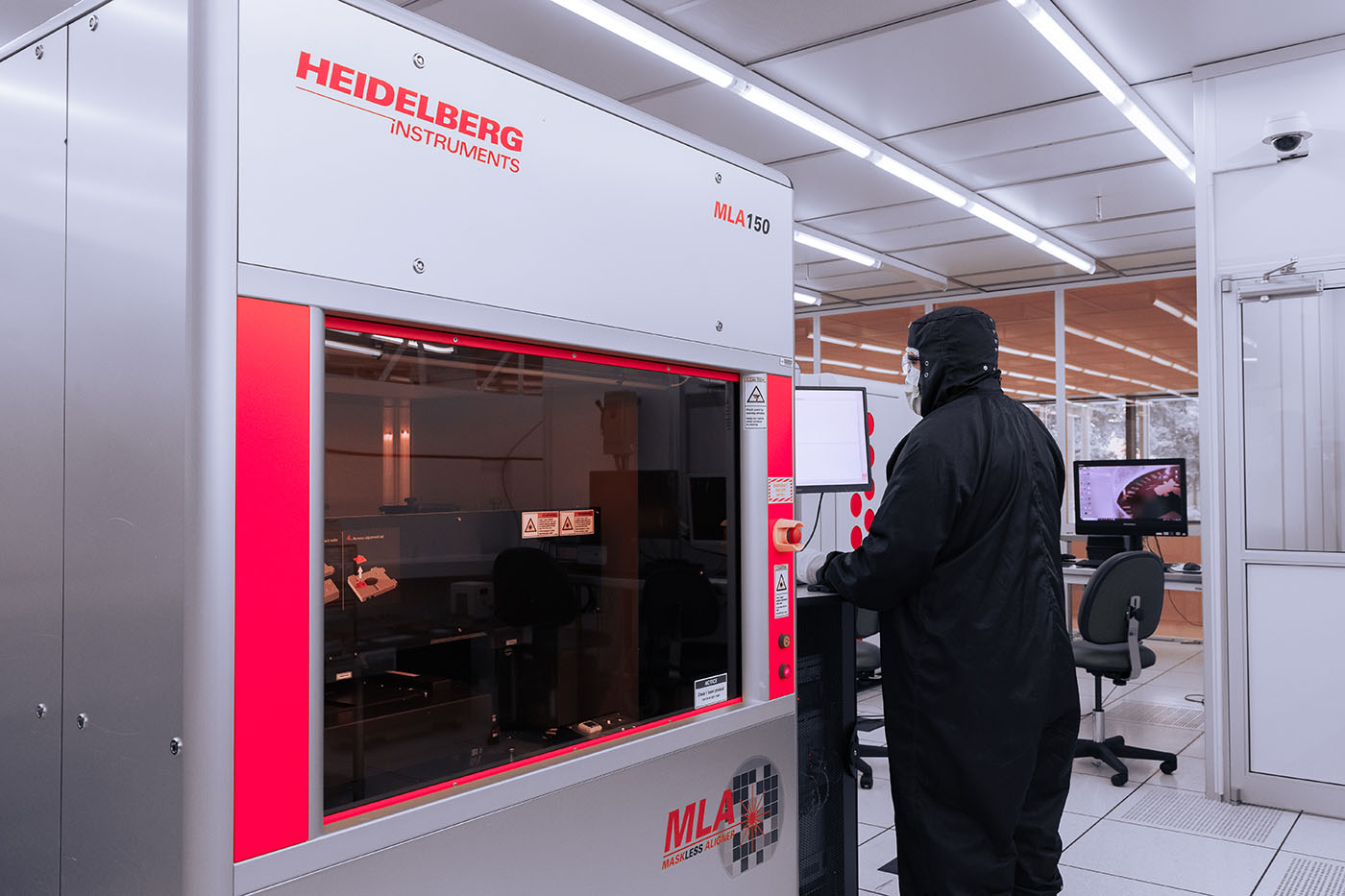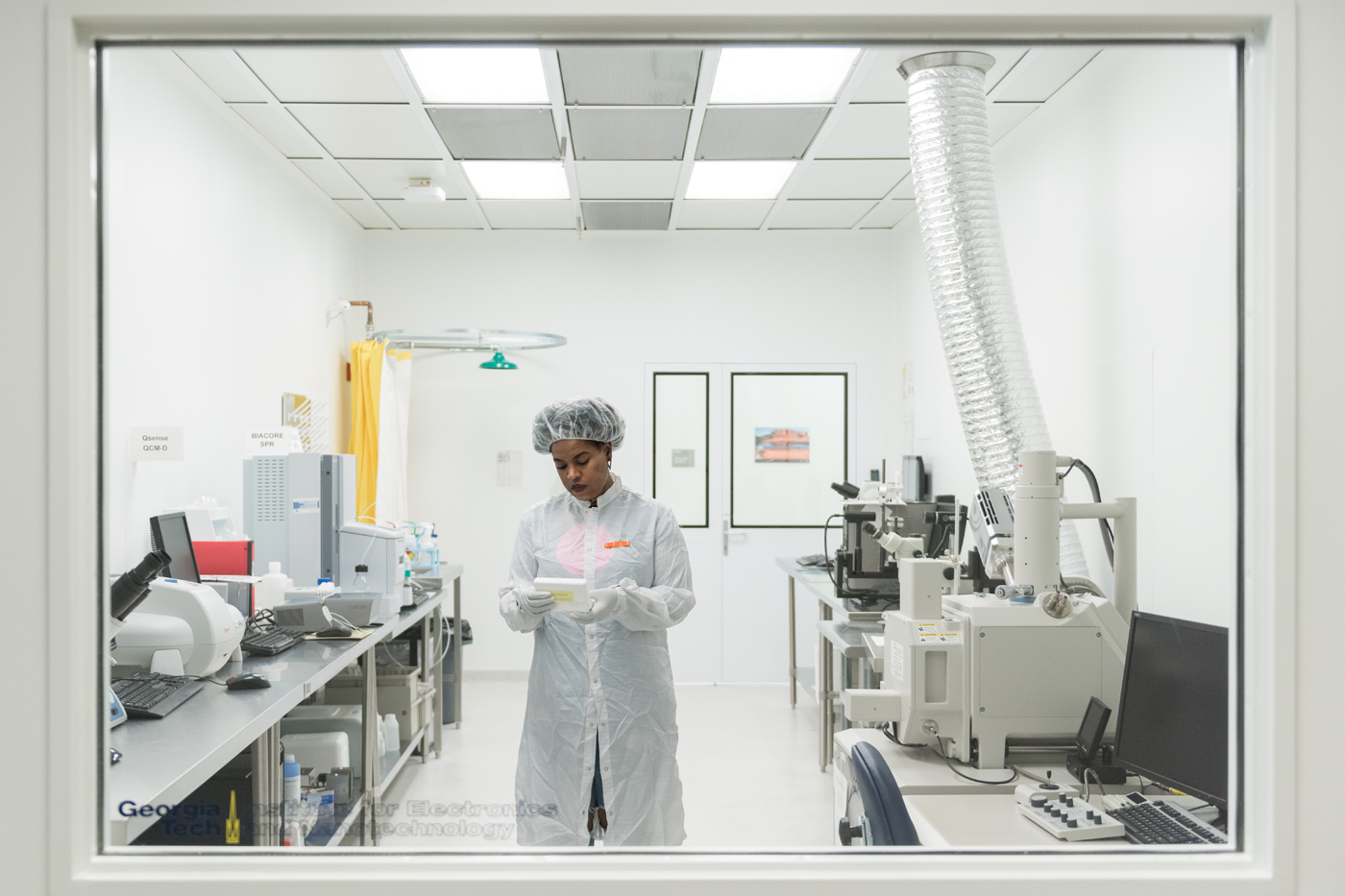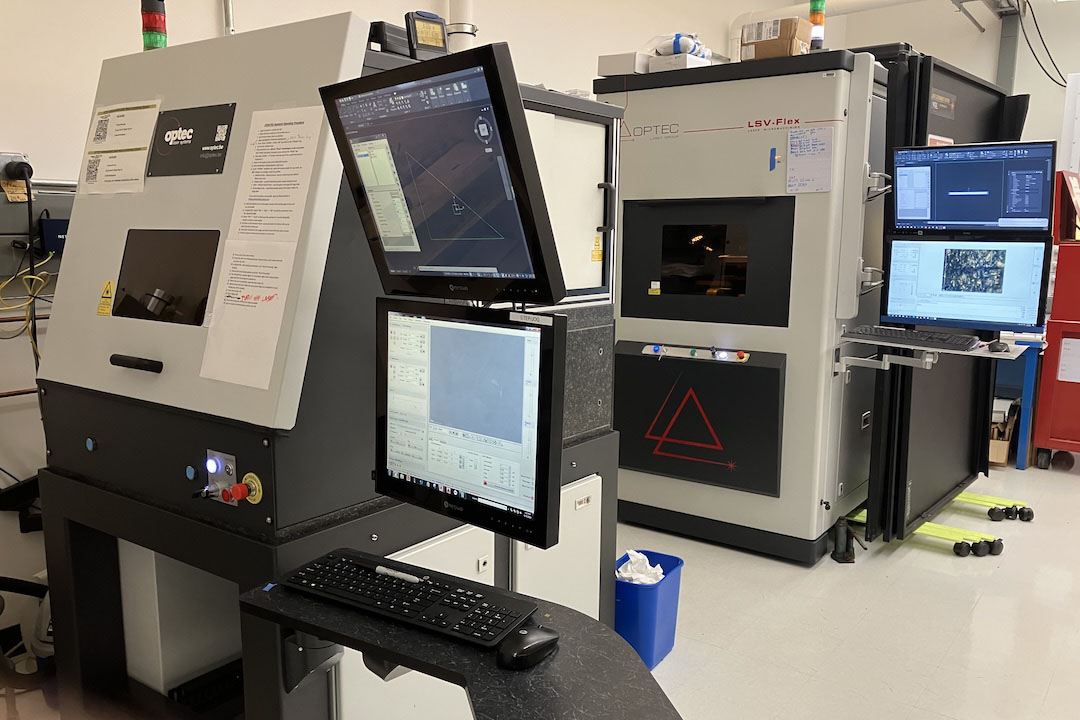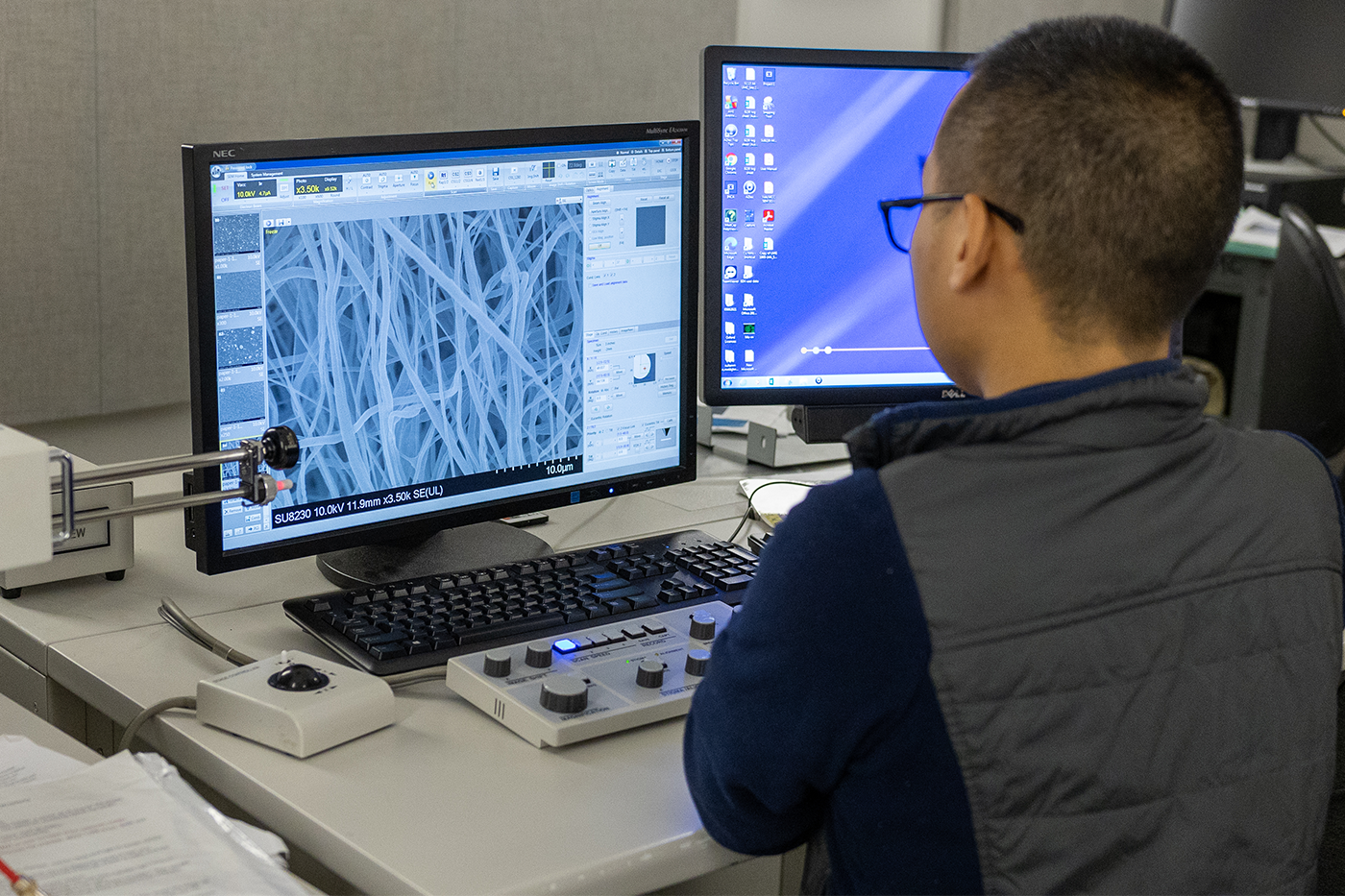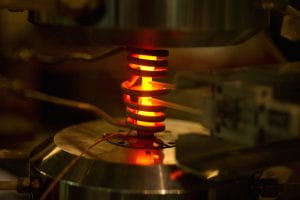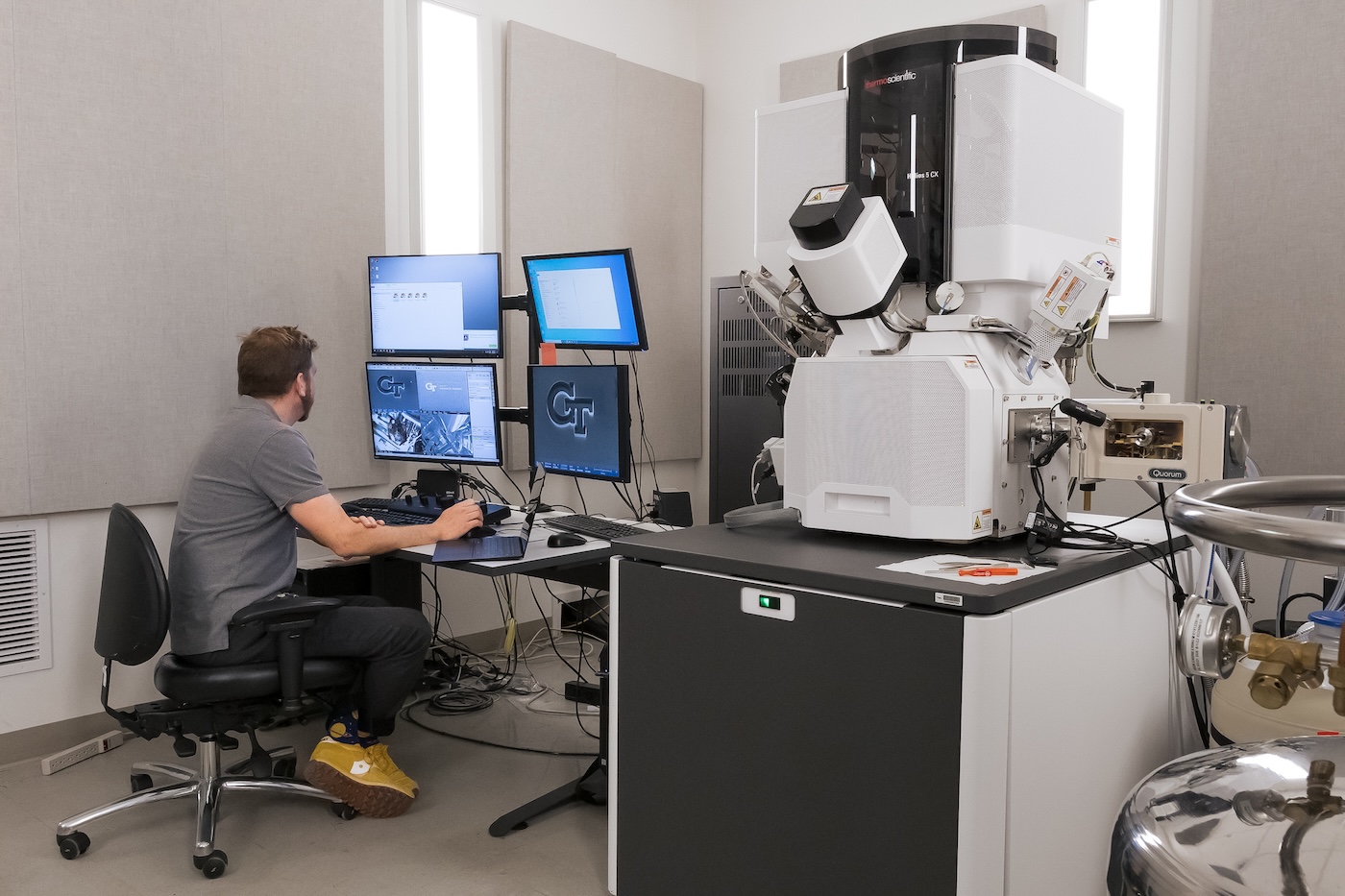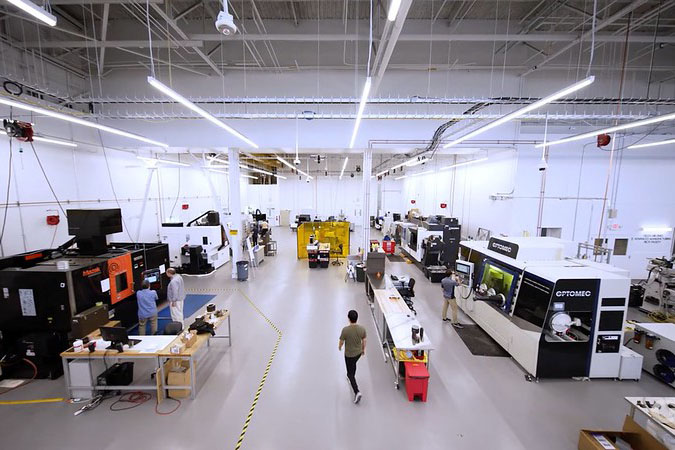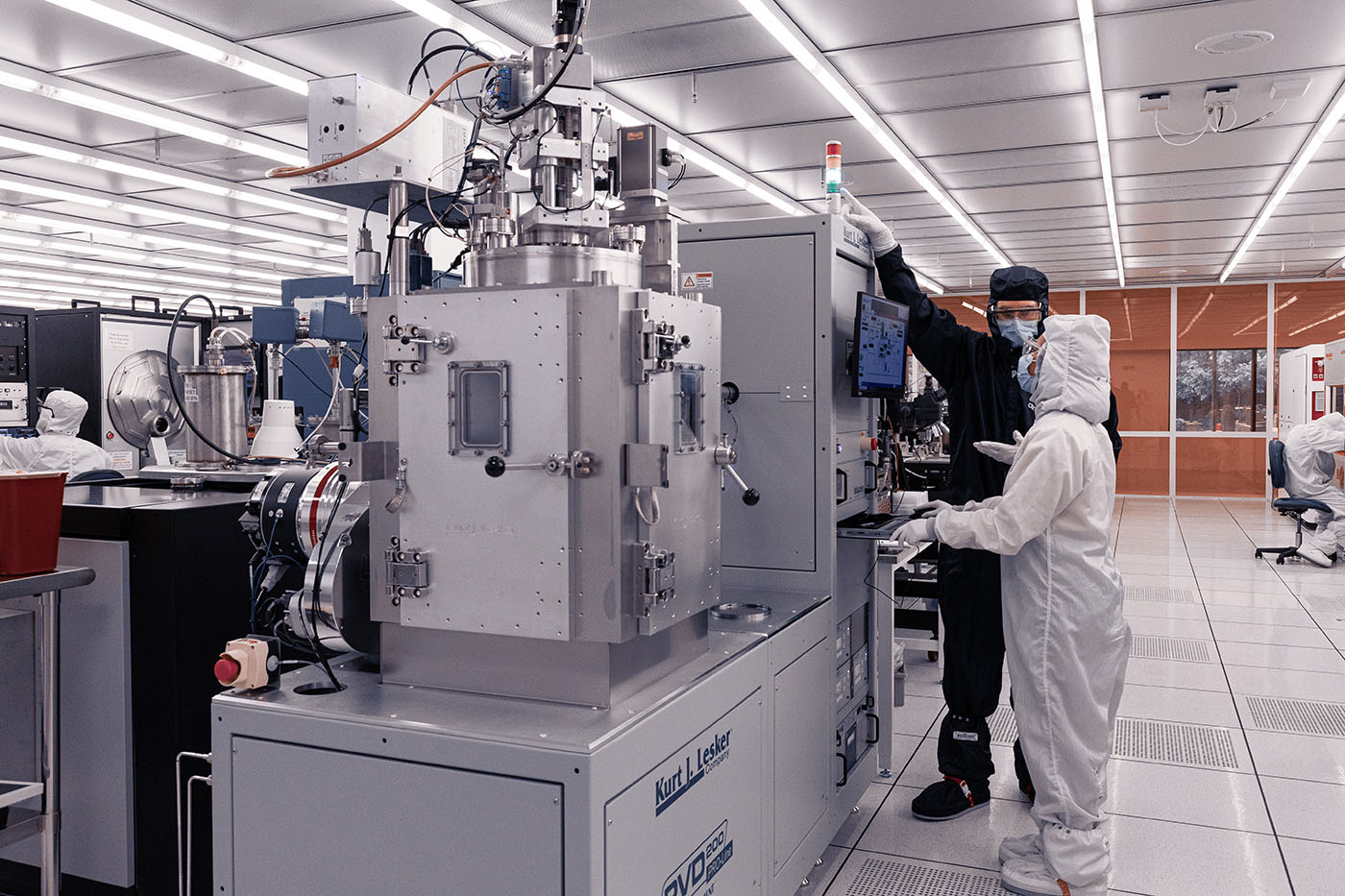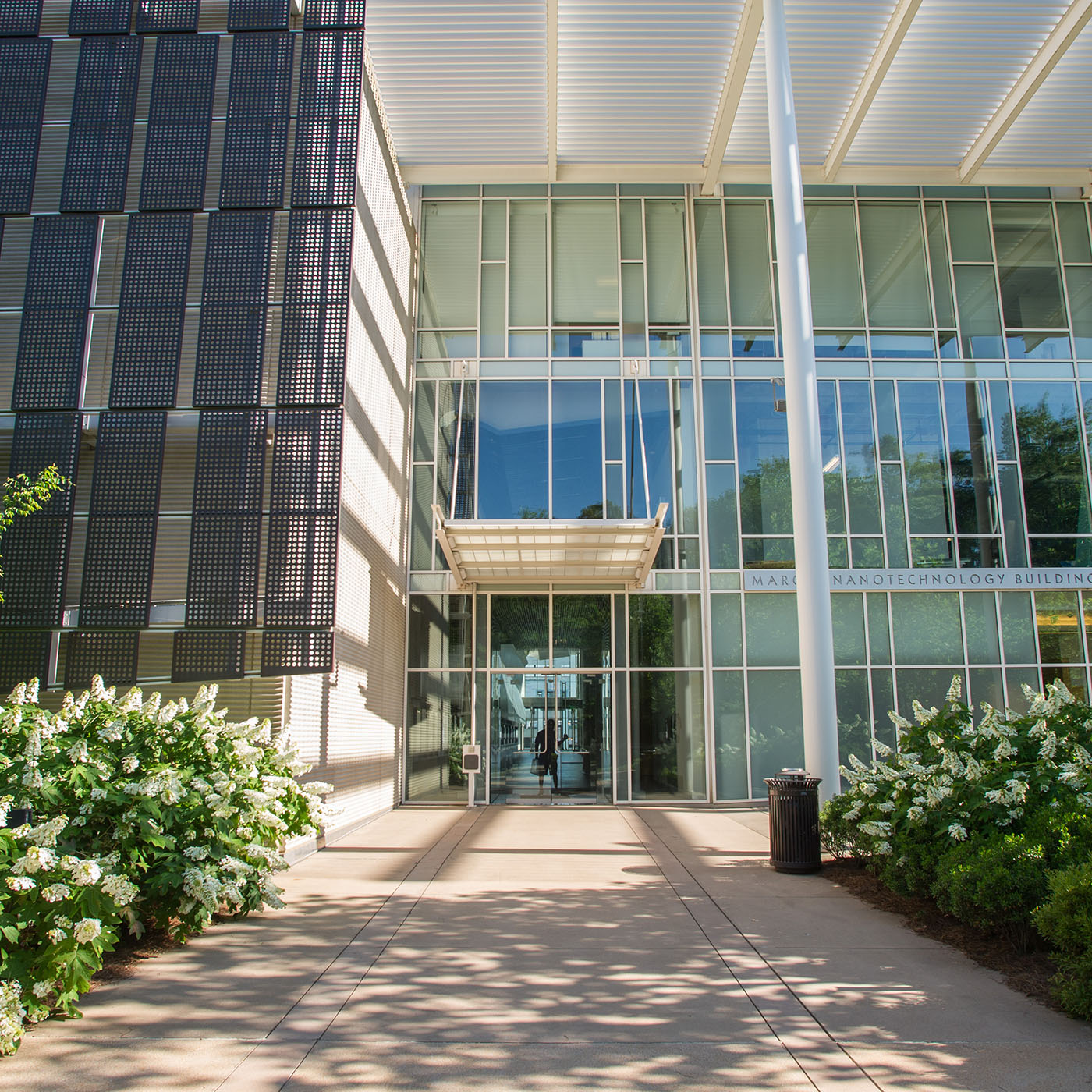
Explore our Core Facilities
The Institute for Matter and Systems (IMS) operates state-of-the-art electronics and nanotechnology core facilities at Georgia Tech, offering a broad range of fabrication and characterization capabilities for activities from basic discovery to prototype realization.
As part of the NSF-funded National Nanotechnology Coordinated Infrastructure (NNCI), the core facilities are open to users from academia, industry, and government labs. The following core facilities contain more than 250 different instruments for top-down, lithography-based micro/nano-fabrication, bottom-up material synthesis, high-resolution imaging and advanced material analysis, mechanical properties characterization, and bio-related fabrication and manufacturing.
Fabrication
Micro/Nano Fabrication Facility
We operate and support the region’s largest core research laboratories in several buildings on campus. Hands-on, shared user cleanroom space totals 28,500 square feet in the Marcus Nanotechnology and Pettit buildings. These cleanrooms are used for electronics, MEMS, photonics, and materials research, along with specialized class 100 bays for working at the interface between fabrication and life sciences.
Biocleanroom
The Georgia Tech Biocleanroom provides world-class scientific infrastructure to researchers from academia, industry, and government agencies. The biocleanroom is a combination of class 1000 cleanroom and bio-safety level II lab. This unique combination is an appropriate environment for contamination-free bio-related fabrication and manufacture. The facility and staff can also assist you with printing and fabrication, materials characterization, and microscopy needs.
Laser Micro-Machining Lab
The Laser Micro-Machining Lab focuses on the applications of lasers and plasmas to problems in energy, transportation, security, and measurement, with a particular emphasis on femtosecond light pulses and the use of high-power laser technology. Our Laser Micro-machining lab is open to users from academia, industry, and government labs with all backgrounds with an interest in combining engineering and physics to explore fundamental questions in science while building the devices, tools, and technology of tomorrow.
Characterization
Materials Characterization Facility
The IMS Materials Characterization Facility (MCF) is the core facility for materials analysis at Georgia Tech. Its laboratories include the microanalysis suite in the Marcus Nanotechnology Building and it is one of the most advanced facilities of its kind in the nation. Available to academic, industry, and government users 24 hours a day with a uniform set of fees and policies, the MCF offers access to the latest in imaging and analysis technology and tools. Additionally, the MCF employs highly skilled technical staff to support your research.
Mechanical Properties Characterization Facility
The Mechanical Properties Characterization Facility (MPCF) provides training on the use of a variety of mechanical test systems and helps coordinate the usage. MPCF staff can provide support in setting up test programs, designing accessories and adapters, developing new protocols, integrating new sensors and transducers, developing control algorithms, and more.
Organic Materials Characterization Lab
The Organic Materieals Characterization Facility is a shared-user facility focused on the analysis of the molecular properties of polymeric and organic materials. It houses instrumentation for analyzing the thermal, vibrational, optical, dimensional, and mass properties of materials.
AI Manufacturing Pilot Facility
The Artificial Intelligence Manufacturing Pilot Facility is a state-of-the-art translational center for developing the "factory of the future." As a complement to its extensive synthesis and processing toolsets, the MCF maintains a characterization lab with optical and chemical analysis tools with plans to add electron microscopy and x-ray analysis tools over the next 12 - 18 months.
NNCI and Senic
NNCI and SENIC Facilities
Georgia Tech is the coordinating office for the NSF National Nanotechnology Coordinated Infrastructure (NNCI). Sixteen NNCI sites across the U.S. provide researchers from academia, small and large companies, and government with access to university user facilities with leading-edge fabrication and characterization tools, instrumentation, and expertise within all disciplines of nanoscale science, engineering and technology.
As part of the NNCI, the Southeastern Nanotechnology Infrastructure Corridor (SENIC) was created as a partnership between Georgia Tech and the Joint School of Nanoscience and Nanoengineering (JSNN), an academic collaboration between North Carolina A&T State University (NCA&T) and the University of North Carolina at Greensboro (UNCG). SENIC combines the infrastructure strengths of both Georgia Tech and JSNN to provide our users access to one of the largest and most modern nano-fabrication and nano-characterization tool sets in the country.
Become a Core User
Anyone in the world can come to Georgia Tech and access the cleanrooms and laboratories at the Institute for Matter and Systems. Whether you are already a member of the Georgia Tech community or a non-GT affiliate user, there are only a few simple steps to join and get access.

